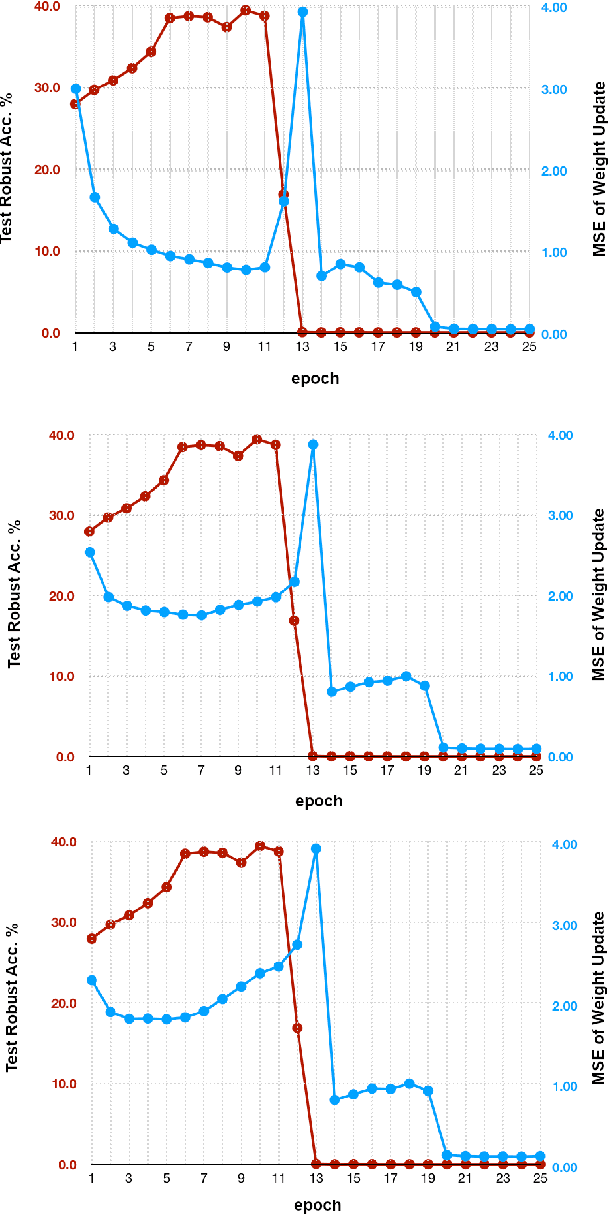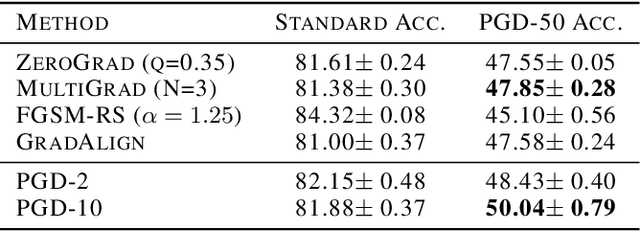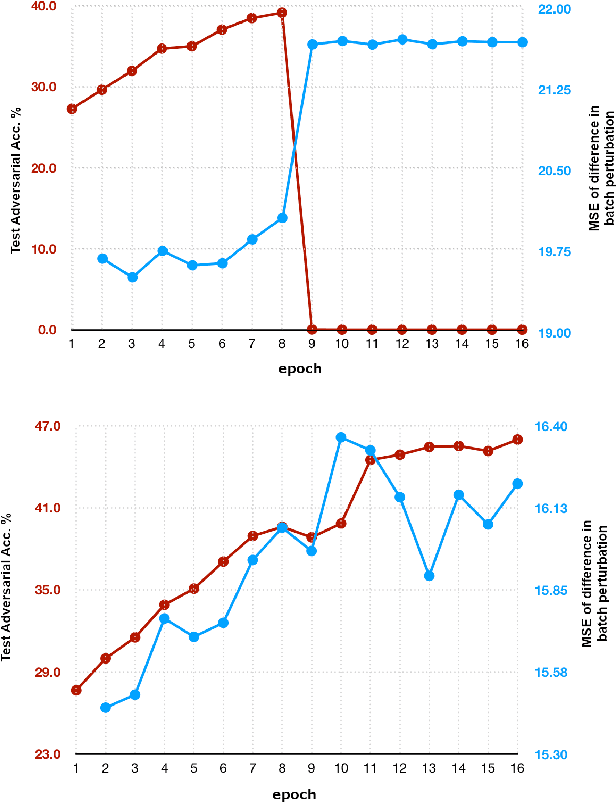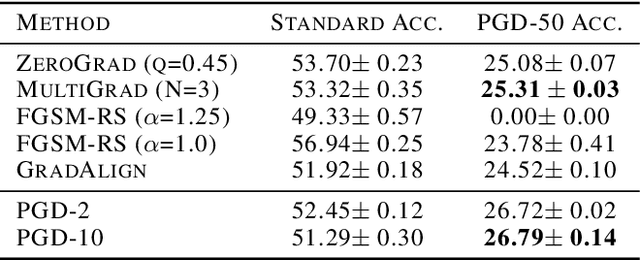Zeinab Golgooni
ZeroGrad : Mitigating and Explaining Catastrophic Overfitting in FGSM Adversarial Training
Mar 29, 2021



Abstract:Making deep neural networks robust to small adversarial noises has recently been sought in many applications. Adversarial training through iterative projected gradient descent (PGD) has been established as one of the mainstream ideas to achieve this goal. However, PGD is computationally demanding and often prohibitive in case of large datasets and models. For this reason, single-step PGD, also known as FGSM, has recently gained interest in the field. Unfortunately, FGSM-training leads to a phenomenon called ``catastrophic overfitting," which is a sudden drop in the adversarial accuracy under the PGD attack. In this paper, we support the idea that small input gradients play a key role in this phenomenon, and hence propose to zero the input gradient elements that are small for crafting FGSM attacks. Our proposed idea, while being simple and efficient, achieves competitive adversarial accuracy on various datasets.
 Add to Chrome
Add to Chrome Add to Firefox
Add to Firefox Add to Edge
Add to Edge